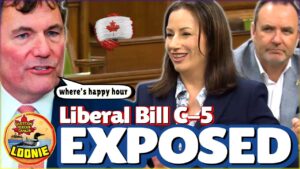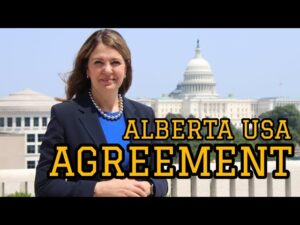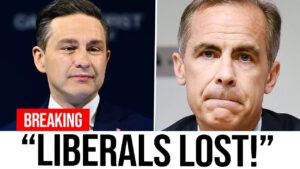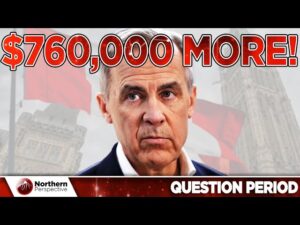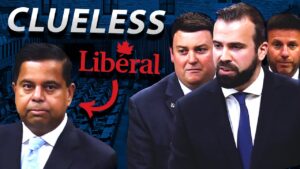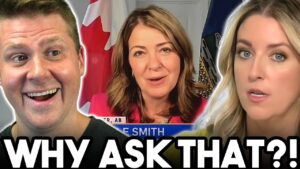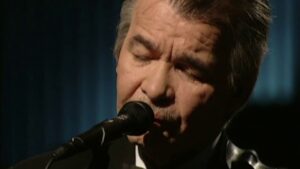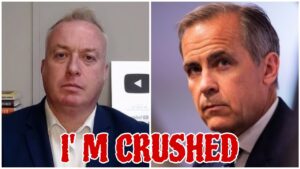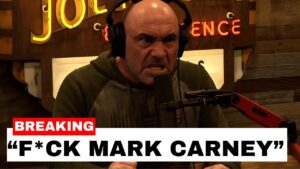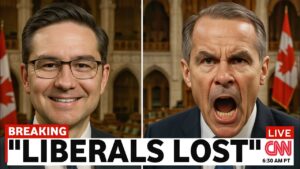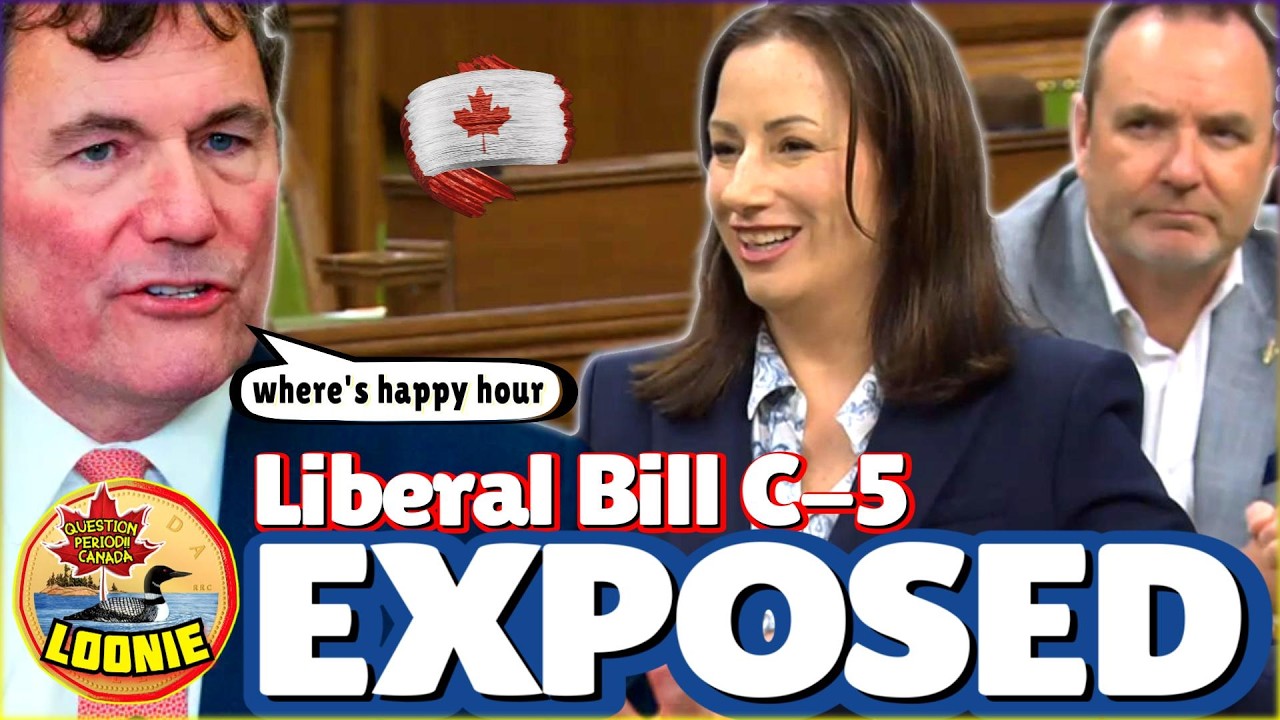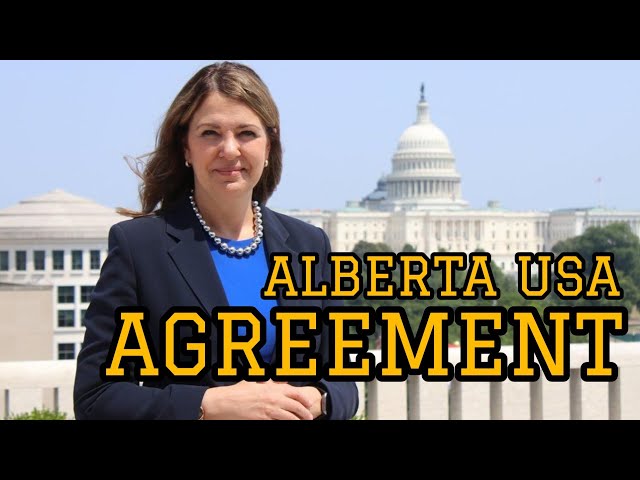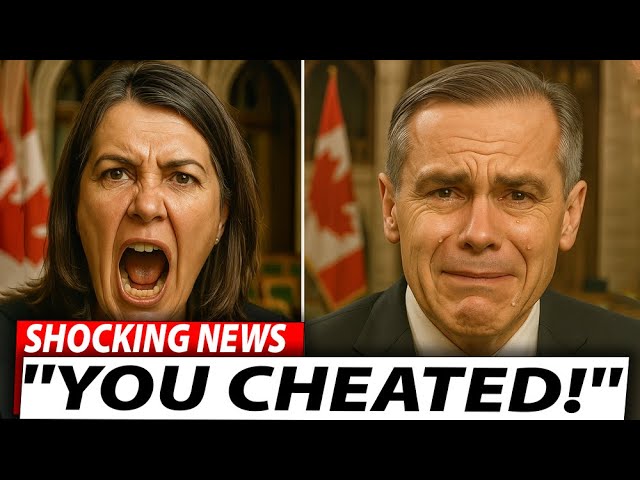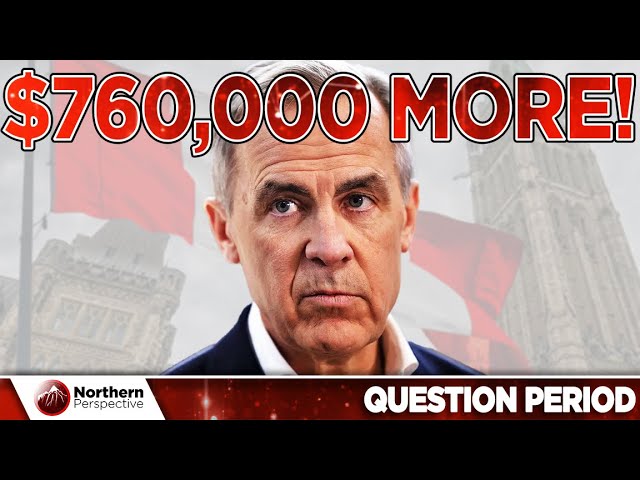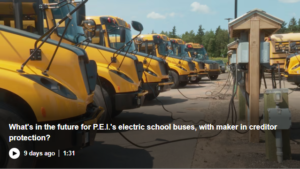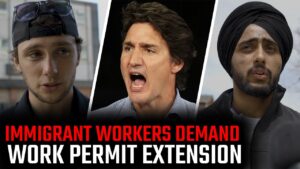Canadians may need to brace themselves, because the political terrain beneath the country has undergone a jolt of seismic proportions.
Video Transcript:
This is David Miller, where Canadian politics gets real. Smash that subscribe button and stand with us on the front lines. One click, one second, and it means everything. Let’s dive into today’s story. Canadians may need to brace themselves because the political terrain beneath the country has undergone a jolt of seismic proportions. On May 18th, 2025, Premier Franis LGO of Quebec triggered a national reckoning by announcing his government’s decision to establish a formal provincial committee tasked with exploring the future of Quebec’s relationship with Canada, including the possibility of secession. For decades, Quebec’s flirtation with sovereignty has ebbed and flowed, surfacing in referendums, party platforms, and cultural flash points. But this moment is different. It is deliberate, sharpened by years of unresolved grievances and fueled by a growing sense of urgency. LGO’s declaration was more than symbolic. It came with a directive, a timeline, and a political resolve not seen since the 1995 referendum, which famously ended with Quebec choosing to remain in Canada by a margin of less than 1%. This time, the federal government is not facing a lone province raising constitutional questions. It is confronting a multiffront uprising. The catalyst came from the West. Alberta Premier Danielle Smith set the wheels in motion earlier in May, announcing a proposed 2026 referendum on Alberta’s independence. The referendum would be contingent on a public petition, a petition that her government made far easier to trigger by lowering the required number of signatures. Smith’s move, anchored in fierce opposition to federal climate policies and energy restrictions, reawakened long-standing tensions over federal provincial relations. What had been simmering unrest quickly began boiling over. Smith’s argument was unflinching. Ottawa’s climate mandates, emissions caps, and pipeline obstructions were strangling Alberta’s prosperity. Her province, which generates approximately a quarter of Canada’s total exports through its energy sector, was not going to remain silent. In her view, the federal government had crossed the line from policymaking to economic sabotage. Alberta, she warned, would not be held hostage. Quebec was watching closely. Just a day after Smith’s announcement on May 7th, party Kebekqua leader Paul San Pierre Plameondong publicly expressed solidarity with Alberta’s defiance. Though their ideologies differ, both leaders share a belief that the federal government is unaccountable to the unique needs of the provinces. In Quebec’s case, the grievances stretch beyond economic policy to include language rights, immigration authority, and cultural preservation. LGO’s decision to establish a constitutional review committee was inspired in part by Smith’s boldness. The West had acted and now so would the East. But perhaps no political figure has championed Quebec’s national aspirations with more consistency and rhetorical clarity than Block Kebbequa leader Eve Francois Blanche. Blanche, who has served as the federal voice of Quebec nationalism since 2019, has never shied away from discussing independence. Under his leadership, the block has maintained a strong presence in the House of Commons and has regularly accused the federal government regardless of the party in power of ignoring Quebec’s values and undermining its autonomy. In recent years, Blanche has framed Quebec not as a region within a federation, but as a distinct nation already, one that merely lacks the full machinery of sovereignty. Following Legol’s May 18th announcement, Blanche wasted no time. That same evening, he held a press conference in Montreal, hailing the premier’s decision as an essential and overdue conversation for our people. He reiterated his position that the Canadian Federation is incompatible with Quebec’s aspirations, and he pledged the block’s full support in facilitating public discourse on the province’s future. “This is not about anger or division,” Blanche told reporters. It is about respect for who we are, for our language, for our identity, and it is about Quebec deciding for Quebec. Blanche also announced that his party would introduce a motion in parliament calling for formal recognition of Quebec’s right to self-determination, a move that is unlikely to pass, but symbolically powerful. The motion is designed to stir debate in Ottawa and just as importantly, in the homes and streets of Quebec. Blanche knows that a national conversation on sovereignty cannot be led by Quebec City alone. It must also be amplified from Ottawa. By mid-May, public opinion in Quebec began to shift noticeably. A fresh Leger poll conducted on May 14th showed sovereignty support rising to 36% a significant jump from previous months. Some projections suggested it could cross the 40% threshold in the coming weeks, numbers not seen since the mid 1990s. Blanche welcomed the momentum but cautioned that any future referendum must be anchored in facts, unity, and a clear vision. Meanwhile, the federal landscape continues to fracture. Prime Minister Mark Carney’s Liberal government, freshly reelected on April 28th, finds itself suddenly confronting not one but two potential sovereignty movements, each from economically vital provinces. While Carney spent the early days of his renewed mandate promoting national innovation and climate action, he is now facing an existential challenge to national unity itself. The economic stakes are monumental. Alberta’s oil sands and Quebec’s hydroelectric power form the twin pillars of Canada’s export economy. Any disruption, whether through secession or political paralysis, would destabilize trade, alter fiscal transfers, and likely trigger a negative reaction from global credit agencies. The looney would wobble. Investor confidence would erode. Markets would become jittery at the prospect of a disassembled Canada. The cultural and legal ramifications are equally severe. Indigenous leaders in both provinces have already voiced deep concerns about being left out of these independence conversations. In Alberta, several Treaty 7 First Nations issued a joint statement on May 20th warning that any provincial departure from Canada must still respect treaty rights established under federal law. In Quebec, Mohawk and Inu representatives reminded reporters that indigenous nations have never consented to be part of Quebec’s self-determination efforts. We are not property of any province. One Inu elder said, “Our sovereignty is not theirs to claim or discard.” The growing alliance between Alberta and Quebec now includes an informal yet undeniable third partner, discontent. From Saskatchewan to parts of British Columbia, provincial leaders and grassroots movements are watching events unfold and considering their own options. Saskatchewan Premier Scott Mo has made recent comments suggesting that his government may seek greater autonomy from Ottawa, particularly over natural resources and taxation. Though he has not endorsed separation, the trend is clear. Federal authority is being tested across the board. Within Alberta, the Alberta Next initiative is rolling out across towns and cities, forums designed to collect public sentiment on independence. These gatherings are no longer fringe. They are mainstream. Likewise, Quebec is launching its own series of consultations coordinated by LGO’s new constitutional committee and supported politically by the block kebbequa. The goal is to define what kind of future Quebecers want and to prepare for every possibility. In Ottawa, the response has been halting. Prime Minister Carney’s most visible move was a May 13th diplomatic visit to Washington, where he reassured American officials that Canada remained stable and committed to trade, but his domestic reassurances have lacked the same energy. While his office has issued statements promoting national unity, no clear counter strategy has been offered. Smith has now issued a clear deadline. If federal climate caps are not repealed within 6 months, Alberta will proceed with formal plans for a referendum. Blanche, while not setting a timeline, is increasingly framing federal resistance as proof of the systems brokenness. Even within federal opposition parties, there is confusion. One leader accused Smith and LGO of recklessness, warning that national disintegration would harm all Canadians. Another leader struggling to recover from electoral losses has remained largely silent, prompting accusations of political cowardice. At this point, the central question is no longer whether Canada is in a crisis. It is how deep the crisis will go. Will Alberta and Quebec use their threats as leverage to secure policy concessions? Or are they building the scaffolding for genuine departure? Could other provinces follow suit? Could the constitutional foundation of Canada be rewritten or torn down? altogether. What’s unfolding now cannot be reduced to a single cause or region. This is not 1995. It is far more complex. It involves language, climate, economy, culture, and indigenous rights. It involves pipelines and hydro dams, immigration, and national memory. It involves a block kebekqua leader who has spent years laying the ideological groundwork. It involves a Quebec premier who has moved from cautious nationalism to active maneuvering. It involves an Alberta premier whose referendum plans are no longer hypothetical. And it involves millions of Canadians who may soon be asked to vote on the most fundamental question of all. Should their province remain in Canada? The answers to that question will shape not just the next election cycle, but perhaps the very structure of the country itself. Canada is not standing at a crossroads anymore. It is looking out over the edge and the winds of change are rising. That’s a wrap for today. Thanks for watching David Miller. If you haven’t already, hit subscribe, drop a like, and let me know your take in the comments.

